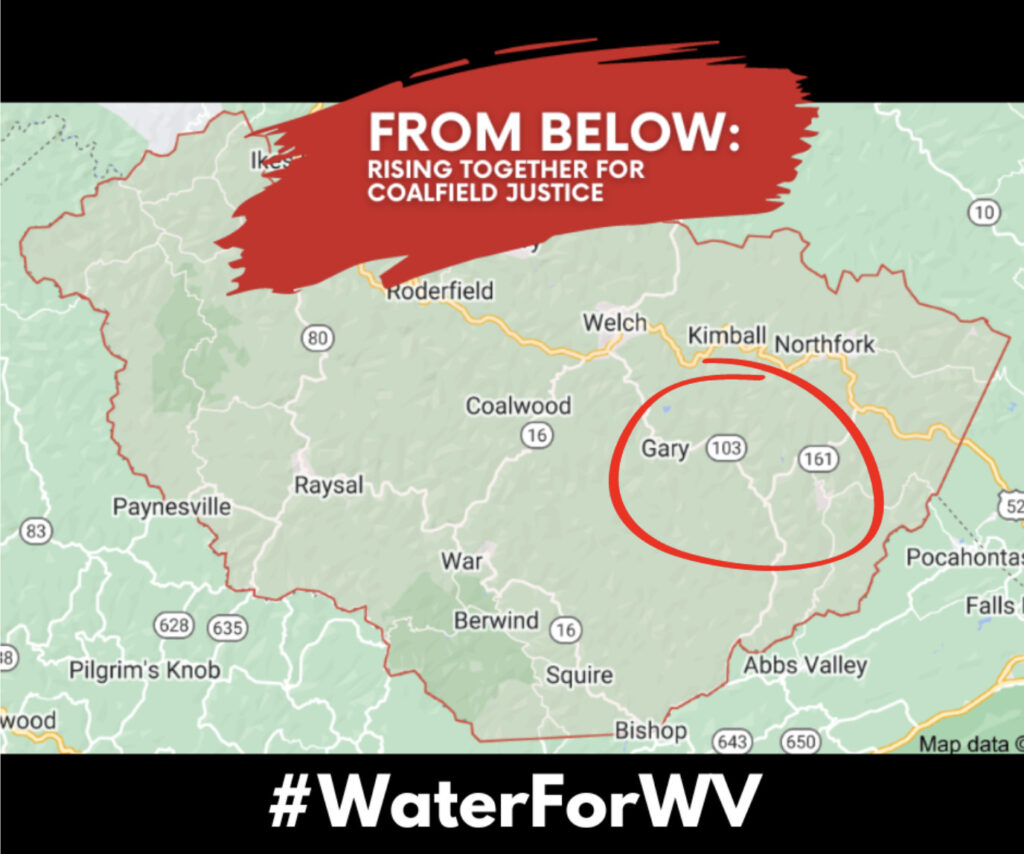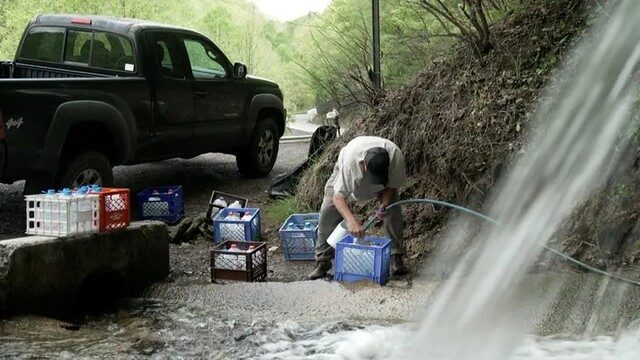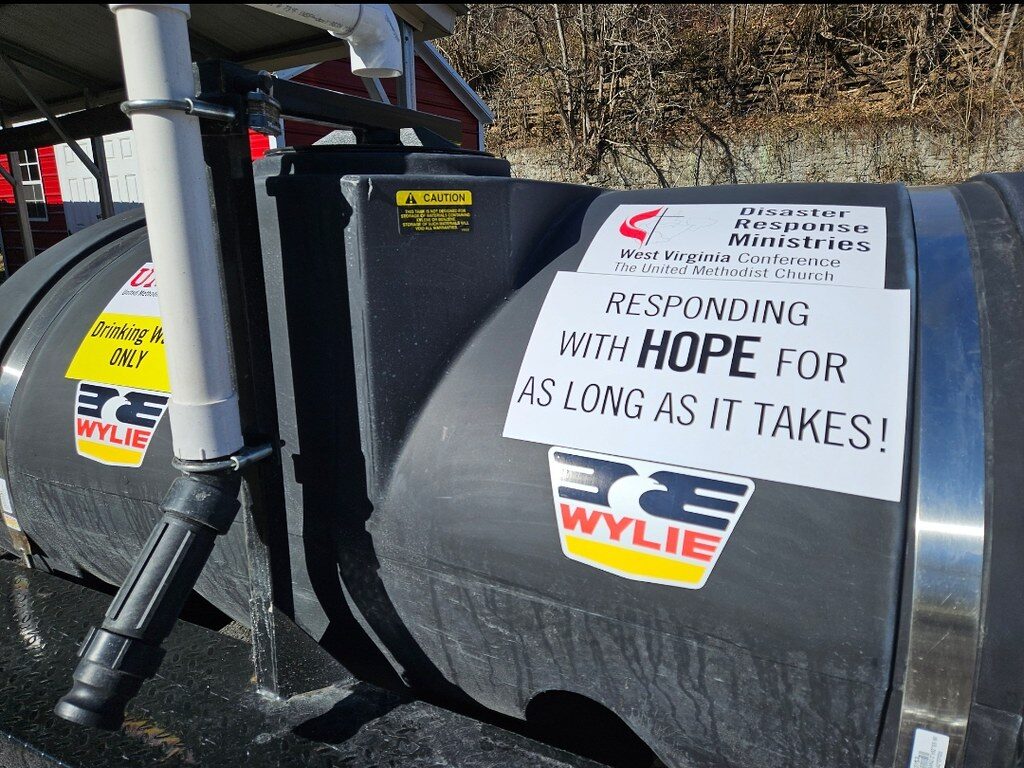Banner CTA goes here if needed

Sustainable Food System
Overview
From Below in collaboration with EDGE, Together for Hope Appalachia, and the Mennonite Central Committee (The Central Appalachian Faith Collaborative) We believe that the lack of access to clean water coupled with food insecurity are existential threats to our community. As people of faith, we have made food justice an urgent priority and support practices that ensure access to healthy nourishment, particularly within communities such as ours that have suffered environmental degradation and lack the resources to produce or purchase their own food. Our faith informs us that a sustainable agricultural system is a prerequisite for meeting the nutritional needs of any community, and currently, such a system is non-existent in the place we call home.
Economic Development Greater East (EDGE) is a non-profit co-led by Amelia Bandy and Jason Tartt located on the southern edge of the county. EDGE is creating a 21st-century economy for McDowell County, where food is foundational, land is conserved, and people are valued. Their major initiatives include a demonstration farm in the community of Berwind, EDGE THRIVE training programs, and Mountain Farm Community Grocery.
Such a project as this is vital to the future of a nutritionally-deprived McDowell County, where more than a third of our residents do not get enough to eat on a daily basis, including nearly 40 percent of our children. The county is designated as being food insecure (or a “food desert”) and consistently ranks at or near the top of the nation’s most impoverished counties. As referenced above, there are only two supermarkets that serve an extremely rural, geographically large county where many people do not have transportation. Additionally, there is one smaller grocery store and several Dollar General/Family Dollars, where access is provided to cheap, non-nutritious food. On the Berwind Demonstration Farm, over 361 acres are being stewarded into mountain farm production. They reached 3,885 hours of training total in mountain farm production and workforce development. EDGE has 1,000 square feet in development for retail and shelf space for local and regional goods through Mountain Farm Community Grocery. Eight production lines have been piloted for scale. EDGE’s brand, Appalachian Gold, unites regional farmers by producing food products that are 100 percent Appalachian-grown and produced by the hard-working farmers of the region. “We are proud of our region and committed to strengthening our farming community.” Jason Tartt explains. “For food producers, we support your work and want to make sure you can financially continue to do it with dignity because the agricultural system does not really have a handle on supporting small farmers, Black farmers, beginning farmers, or people who do things on a small scale.”
EDGE is currently training community members using an entrepreneurship-based model in food production around viable products that are high value and should be scaled in production to increase food sovereignty locally and ideally across the US. EDGE uses a rural-to-urban resource exchange model to link rural communities like ours with communities that have the resources we need, like markets and population, to have success with these production plans. Trainees are currently working to create small businesses in goat meat production, poultry and egg production, fruit trees, berry production, honey production, and a nursery business. 15EDGE and its partners have completed conservation practices and principles on their demonstration, training, and research farm and facility in Berwind, transforming formerly logged and mined land into land viable for agriculture, tourism, and housing. The migration of people into our communities can be made a success by creating energy from the abundant water sources we possess, creating communities with multi-use buildings, more walkable communities, taking advantage of the bounty of food production that can take place in Central Appalachia, and preparing for other companies and industries to view our area as ideal for relocation.
We met Amelia Bandy and Jason Tartt at our 2023 community conversation. They shared openly about a desire for something new and different that would serve McDowell County. Community members eagerly spoke with them afterward and identified them as possible leaders of the group. As relationships developed, From Below was invited to work with EDGE as part of a land return initiative for economic development in the area.
What's next
The component needed most urgently to bring these items to scale is land access. Since the land has been destroyed due to underground and surface mining, it is imperative that land in central Appalachia is revived. At the moment, if central Appalachia does nothing to restore these lands, it will take up thirty to forty-five years for the preexisting flora and fauna to return to its previous state. EDGE believes hemp and switchgrass can be used to detoxify and heal the land.
Potential land use could relate to agriculture, tourism, conservation, housing, rural-to-urban resource exchange, repurposing land, and carbon credit. Additional areas of interest are forest medicinals, mushrooms, maple production, composting and waste management, products from wood waste, and more. There is international market potential for goat products. There is potential for a hemp processing facility in the now-vacant Walmart building located at Big Four, just outside the town of Kimball. A North Carolina company is looking for larger tracts of hemp to be grown for textiles and has buyers from Under Armor and Carhartt. There is also potential for hydroelectric generators to be used in this area.
The Central Appalachian Faith Collaborative intends to pursue a follow-up conversation with Berwind Land Corporation, Justice Family Companies, and Norfolk Southern Railway, within thirty days of our mailed letters. We are requesting the release of landholdings into a land bank or land trust for the purpose of community-based economic development in McDowell County. The growth of hemp and switchgrass is believed to be a viable option for restoring damaged land. Potential land use could relate to agriculture, tourism, conservation, housing, rural-to-urban resource exchange, repurposing land, and carbon credit. We are seeking a sustainable food system for McDowell County to address food insecurity, workforce training, and economic self- determination.
Southern WV Coalfield Water Crisis
Ask Gov. Justice to declare a state of emergency and provide clean water to southern coalfield counties
Project News
From 100daysinappalachia.com
From 100daysinappalachia.com
In June 2022, Rev. Brad Davis spoke to the West Virginia Conference of the United Methodist Church on a resolution about clean water in southern
From dailyyonder.com
From wvhighlands.org
Resources

Water Crisis Town Map
Lorem ipsum dolor sit amet, consectetur adipiscing elit. Ut elit tellus, luctus nec ullamcorper mattis, pulvinar dapibus leo.

Water Crisis Brochure
Lorem ipsum dolor sit amet, consectetur adipiscing elit. Ut elit tellus, luctus nec ullamcorper mattis, pulvinar dapibus leo.




